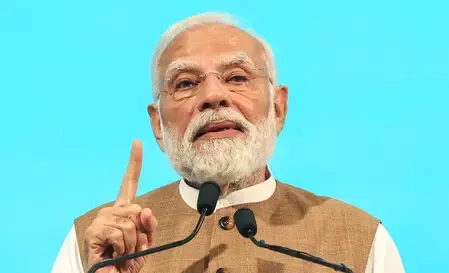Is the EU Set to Reevaluate Pakistan's GSP+ Status Due to Escalating Human Rights Violations?

Synopsis
Key Takeaways
- Evidence of human rights violations in Pakistan is mounting.
- The EU is urged to reassess Pakistan's GSP+ status.
- Balochistan is facing severe oppression and violence.
- Activists are advocating for independent reviews and accountability.
- Religious minorities continue to suffer systemic persecution.
New Delhi, Nov 9 (NationPress) Increasing evidence of systematic human rights violations in Pakistan, especially in Balochistan, has sparked fresh demands for the European Union to reconsider Islamabad's preferential trade privileges under the Generalised Scheme of Preferences Plus (GSP+).
Human rights organizations and observers caution that Pakistan's track record is deemed “extremely troubling,” plagued by enforced disappearances, arbitrary arrests, torture, and severe limitations on freedom of expression.
A report by EU Today indicates that these infractions starkly contradict Pakistan's commitments under international treaties, including the International Covenant on Civil and Political Rights and the Convention Against Torture—both essential elements of the GSP+ framework.
The document further notes that conditions in Balochistan are characterized as a “human rights black hole,” where state forces persist in quelling peaceful dissent.
Activists such as Dr. Mahrang Baloch, a prominent advocate against enforced disappearances, have suffered ongoing harassment and intimidation for leading peaceful demonstrations.
Reports from various rights organizations illustrate a consistent pattern of abductions, extrajudicial executions, and collective retribution targeting the families of victims.
Recently, the Zehri district has experienced one of the most severe escalations, with credible accounts of a military siege involving tanks, helicopters, and armed drones.
Entire villages were reportedly devastated, leaving civilians stranded without access to medical assistance or humanitarian support—actions that observers categorize as “collective punishment” and significant violations of international law.
Outside Balochistan, religious minorities such as Christians, Hindus, Ahmadis, and Sikhs continue to endure systemic oppression.
Pakistan's blasphemy laws, frequently criticized for their misuse, have resulted in mob violence, wrongful incarcerations, and fatalities, with minimal government intervention or reform.
The report suggests that human rights advocates are urging the EU to conduct an independent evaluation of Pakistan's adherence to its GSP+ commitments, engage with diaspora-led civil society groups, and apply pressure on Islamabad to cease disappearances and release peaceful demonstrators.
Critics caution that prolonging trade privileges despite evident violations “conveys a dangerous message that economic interests take precedence over human rights.”
They contend that the EU must ensure its trade policies align with its fundamental principles—accountability, rule of law, and justice for the people of Balochistan and Pakistan’s marginalized minorities.









